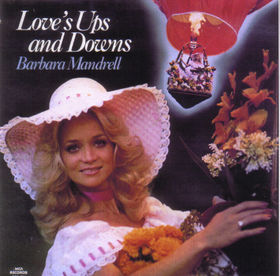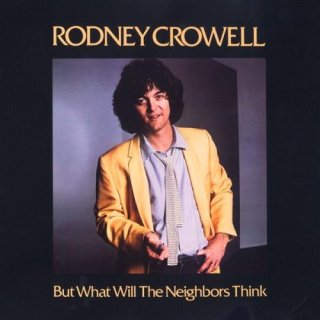
Earth, Wind & Fire is an American band whose music spans the genres of jazz, R&B, soul, funk, disco, pop, Latin, and Afro-pop. They are among the best-selling bands of all time, with sales of over 90 million records worldwide.
Ace were a British rock band who enjoyed moderate success in the 1970s. Their membership included Paul Carrack, who later became famous as a vocalist for Mike + The Mechanics and as a solo artist. Ace were perhaps best known for their hit single "How Long", which was a top 20 single in the United Kingdom in 1974, and reached no. 3 in the United States and Canada in 1975.

Paul Melvyn Carrack is an English singer, musician, songwriter and composer who has recorded as both a solo artist and as a member of several popular bands. The BBC dubbed Carrack "The Man with the Golden Voice", while Record Collector remarked: "If vocal talent equalled financial success, Paul Carrack would be a bigger name than legends such as Phil Collins or Elton John."

"Mr. Sandman" is a popular song written by Pat Ballard and published in 1954. It was first recorded in May of that year by Vaughn Monroe & his orchestra and later that year by The Chordettes and the Four Aces. The song's lyrics convey a request to "Mr. Sandman" to "bring me a dream" – the traditional association of the folkloric figure. The pronoun used to refer to the desired dream is often changed depending on the sex of the singer or group performing the song, as the original sheet music publication, which includes male and female versions of the lyrics, intended.

Machine Gun is the debut studio album by Commodores, released on July 22, 1974, on Motown Records.

"Rock and Roll All Nite" is a song by American rock band Kiss, originally released on their 1975 album Dressed to Kill. It was released as the A-side of their fifth single, with the album track "Getaway". The studio version of the song peaked at No. 69 on the Billboard singles chart, besting the band's previous charting single, "Kissin' Time" (#89). A subsequent live version, released as a single in October 1975, eventually reached No. 12 in early 1976, the first of six Top 20 songs for Kiss in the 1970s. "Rock and Roll All Nite" became Kiss's signature song and has served as the group's closing concert number in almost every concert since 1976. In 2008, it was named the 16th greatest hard rock song of all time by VH1.

Russell Glyn Ballard is an English musician.
"When You Walk in the Room" is a song written and recorded by Jackie DeShannon. It was initially released as a single on November 23, 1963, as the B-side to "Till You Say You'll Be Mine". It was re-released as an A-side in September 1964, and later included on the album Breakin' It Up on the Beatles Tour. The single charted on the US Billboard Hot 100, peaking at number 99.

"How Long" is the debut single by the English band Ace, from their 1974 debut album, Five-A-Side. It reached No. 3 on both the US and Canadian charts, and No. 20 on the UK Singles Chart.

The Force Behind the Power is the nineteenth studio album by American singer Diana Ross, released on September 10, 1991, by Motown Records. The album reached No. 11 on the UK Albums chart and became the biggest selling studio album of her career there, selling over half a million copies in the UK alone.

"Rock Me Baby" is a blues standard that has become one of the most recorded blues songs of all time. It originated as "Rockin' and Rollin'", a 1951 song by Lil' Son Jackson, itself inspired by earlier blues. Renditions by Muddy Waters and B.B. King made the song well-known. When B.B. King's recording of "Rock Me Baby" was released in 1964, it became his first single to reach the Top 40 in Billboard magazine's Hot 100 chart.

"Love Will Keep Us Alive" is a song written by Jim Capaldi, Paul Carrack, and Peter Vale and produced by the Eagles, Elliot Scheiner, and Rob Jacobs. It was first performed by the Eagles in 1994, during their Hell Freezes Over reunion tour, with lead vocals by bassist Timothy B. Schmit. This is the last single to feature Don Felder, who was terminated from the band in 2001.

Love's Ups and Downs is the seventh solo studio album by the American country music singer Barbara Mandrell, released in 1977. It was produced by Tom Collins.

Sedaka's Back is a compilation album by American singer-songwriter Neil Sedaka. The record, composed of selections from his previous three albums, which had been released only in the UK, was released on Elton John's label, The Rocket Record Company, in 1974. Three singles were released from this album: "Laughter in the Rain", "The Immigrant" and "That's When the Music Takes Me." The latter two songs were both Top 40 hits. Also included were songs that were turned into hits by other artists: "Solitaire" and "Love Will Keep Us Together". The album reached No. 23 on the US Billboard album charts and was certified Gold for shipping half a million sales.

Family Tradition is a studio album by American musician Hank Williams Jr. It was released in April 1979 by Curb Records, his third studio album for the label.

Heart and Soul is the eighteenth studio album by American country music artist Ronnie Milsap, released in 1987. The album produced four singles, three of which claimed the top spot on the Billboard country singles chart" "Snap Your Fingers"; "Make No Mistake, She's Mine," a duet with Kenny Rogers; and "Where Do the Nights Go." Two other singles, "Old Folks," a duet with Mike Reid; and "Button Off My Shirt" peaked at #2 and #4 respectively on the country charts. "Button Off My Shirt" was also recorded that same year by Mike + The Mechanics & Ace vocalist Paul Carrack for his solo album "One Good Reason".

Quiver were a British rock band formed in 1970 by Tim Renwick and Cal Batchelor. In December 1972, they teamed up with the Sutherland Brothers and became known as Sutherland Brothers & Quiver, releasing soft rock music and achieving success with the songs "(I Don't Want to Love You But) You Got Me Anyway" and "Arms of Mary", a No. 5 UK hit.

But What Will the Neighbors Think is a studio album by American country music artist Rodney Crowell. It was released in 1980 by Warner Bros. Records. It reached #64 on the Top Country Albums chart and #155 on the Billboard 200 albums chart. The songs, "Ashes by Now", "Ain't No Money" and "Here Come the 80's" were released as singles. "Ashes by Now" only reached #78 on the country charts and #37 on the Billboard Hot 100 while the other two singles failed to chart. This album has more of a rock & roll influence than Crowell's debut, Ain't Living Long Like This. The album was rereleased on compact disc in 2005.

"I Love Rock 'n' Roll" is a rock song written by Alan Merrill and Jake Hooker and first recorded by the Arrows, a British rock band, in 1975. A 1981 cover version by Joan Jett & the Blackhearts, released as the first single from her album of the same name, became Jett's highest-charting hit, reaching number one on the Billboard Hot 100 and becoming the No. 3 song for 1982. The single was certified platinum by the Recording Industry Association of America, representing two million units shipped to stores. Jett's version was inducted into the Grammy Hall of Fame in 2016.
Alan Charles King is an English guitarist and singer, best known for his time with the British 1960s pop group The Action and the 1970s rock band Ace.
















